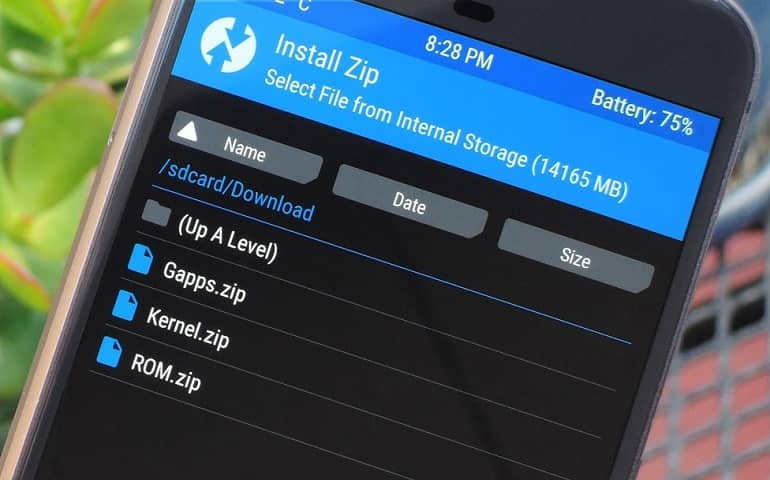If you’re reading this article, chances are you’re already aware of what custom ROMs are? Since Android is an open-source project, it is effortless for the developer community to compile the Android source code, add features, and build a custom ROM. But how to install custom ROM? What are the benefits of flashing a custom ROM to your device? Is it necessary to root a device to a flash custom ROM?
Well, flashing custom firmware is a simple process. All you need is time, patience, and of course a compatible custom ROM. Every Android OEM comes with a default custom skin called the Stock ROM. Samsung phones come with OneUI, Xiaomi uses MIUI, Sony has Xperia UI, OnePlus has OxygenOS, Asus uses Zen UI/ROG UI, Oppo has ColorOS, etc.

Although every mobile brand sports different sets of features, still they lack the ability to access or modify system files and take complete ownership. This is where you can flash a custom ROM and experience the full potential of your device. My advice is that when you buy a new Android phone, stick with the default Stock ROM that you have. Play around with the UI and enjoy your phone without being rooted.
However, as soon as you are bored with the Stock Android skin, install different flavors of custom ROMs and discover your phone’s maximum performance. Besides, if you don’t like the installed custom ROM, just download and flash another one. But make sure to download the ROM from an authentic source.
What is a Custom ROM?
Custom ROM is a third-party firmware and is based on Android source code by Google. It overwrites the factory-installed stock Android ROM with improved functionality and tons of customizations. Android enthusiasts prefer custom ROMs to improve performance and get their hands on the latest Android OS.
Why Do People install Custom ROMs, Anyway?
There was a time when most Android users would root their Android phones and flash a custom ROM. Their main aim was to fully customize and improve the overall device performance. However, today’s Android phones are better than they have ever been. Rooting or flashing custom firmware is not so important nowadays. The Android OEMs have realized the importance of customization.
Therefore, now the preinstalled and default Stock ROM UI comes with plenty of customization features with limited restrictions. If users are happy with their default Android stock ROM, is there really a need or benefit from installing a custom ROM? The answer is yes. Custom ROMs still do serve a purpose. Have a look at the pros and cons of custom ROMs mentioned below.
Advantages of Custom ROM
- Get the latest Android version
- Complete ownership and control over your device
- No bloatware
- Tons of customization
- Fast updates from ROM developers
- Improved battery life
Disadvantages of Custom ROM
- Security issues
- Voids device warranty
- Hardware incompatibility
- Loss of data
- Overclocking results in overheating issues
- No more factory updates
- Camera quality might downgrade
Downloads
Disclaimer
The steps mentioned below are risky. We at Droid Thunder won’t be responsible for any kind of damage caused to your device during or after following this flashing guide.
Pre-Requisites
- Charge your mobile to a minimum of 50% to avoid interruption.
- This ROM flashing process will wipe out your entire phone memory. Hence, take a backup of your important phone data and settings.
- Install USB drivers on your computer.
- Also, enable USB debugging mode in your mobile settings.
Best Ways to Install a Custom ROM on Android
In this guide, we’ve listed the top 3 Best methods to flash a custom ROM on any Android device. Check them out!
1. Flash Custom ROM using TWRP Recovery
This is the most used method to install a custom ROM. All you need is a TWRP custom recovery. Follow our guide to flash custom firmware with TeamWin recovery.
2. Flash Custom ROM using OrangeFox Recovery
Similar to the first, this method also uses a custom recovery called OrangeFox to flash a custom ROM. Follow our guide to flash custom firmware with OrangeFox recovery.
3. Flash Custom ROM using ADB sideload
Do you want to flash custom ROM without TWRP or OrangeFox? If yes, then use this fastboot method. In this method, you can sideload the custom ROM zip package file by using commands in the CMD window.
Google Apps Installation Guide
Now that you’ve installed the custom ROM, it is time to flash GApps on your Android phone. Follow our guide given below to install the Google Apps package.
Conclusion
Finally! This is how you can install Custom ROM on any Android phone. If you face any issues during the flashing process, please let us know. We’ll help you out as soon as possible.







2 thoughts on “How to install Custom ROM on any Android phone”
My phone software update
Custom rom on Samsung A10e